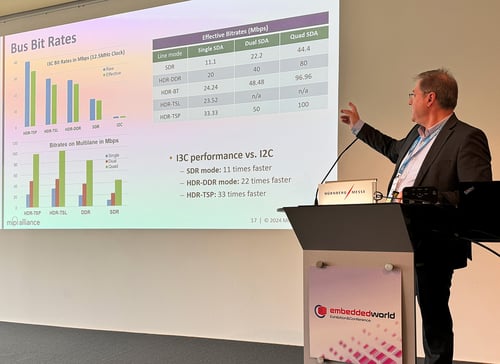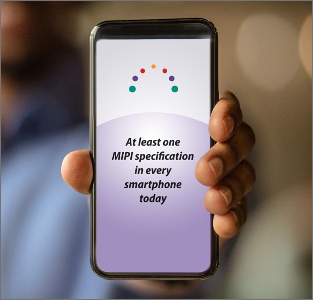MIPI GbD for USB
MIPI Gigabit Debug for USB
.png?width=1200&height=600&name=Banner%20Images%20-%20MIPI%20(26).png)
Developed by: Debug Working Group
The next version of the specification, v1.2, will be renamed to "MIPI Debug Over USB" to align with the naming convention for the MIPI Debug Over (MDO) family of specifications.
A technology for using MIPI debug protocols over USB Debug Device Class
Quick Facts
-
Debug & Trace Portfolio
MIPI Alliance has a family of specifications that can be used to debug components in mobile devices as well as any device that is “smart” or connected, such as an end-point on the Internet of Things. Components that can be debugged with the tools include application processors, modems, device controllers, power management devices, and others.
All of these specifications are available for download and use by the public and the open source community.
Get the Specification
-
Current Version
MIPI Gigabit Debug for USB v1.1 (March 2018)
Member version | Public version
| Public version 
-
Previous Versions
All Gigabit Debug for USB versions are available to MIPI members on the member website (Causeway).
Overview
General Info
-
Overview
MIPI Gigabit Debug for USB (MIPI GbD for USBSM) makes it possible to use the USB Debug Device Class (released in USB 3.1) to run the MIPI SneakPeek Protocol as well as the collection of specifications provided in the MIPI Gigabit Trace Framework Appendix to the MIPI Trace Wrapper Protocol Specification. The use of USB for these procedures minimizes debug’s impact on system functions and enables engineers to use the connection to debug a device while the connection is carrying other traffic.
The specification is developed by the MIPI Debug Working Group. It is available as v1.1. All MIPI debug and trace specifications, including MIPI GbD for USB, are available for download and use by the public and the open source community. Members of the MIPI Alliance enjoy benefits including access to relevant licenses and opportunities to participate in development activities, interoperability workshops and other events.
For information about MIPI Alliance membership, visit Join MIPI.
-
Diagrams & Tables
Debug Capabilities per Adjacent Industries
(best viewed on desktop)






